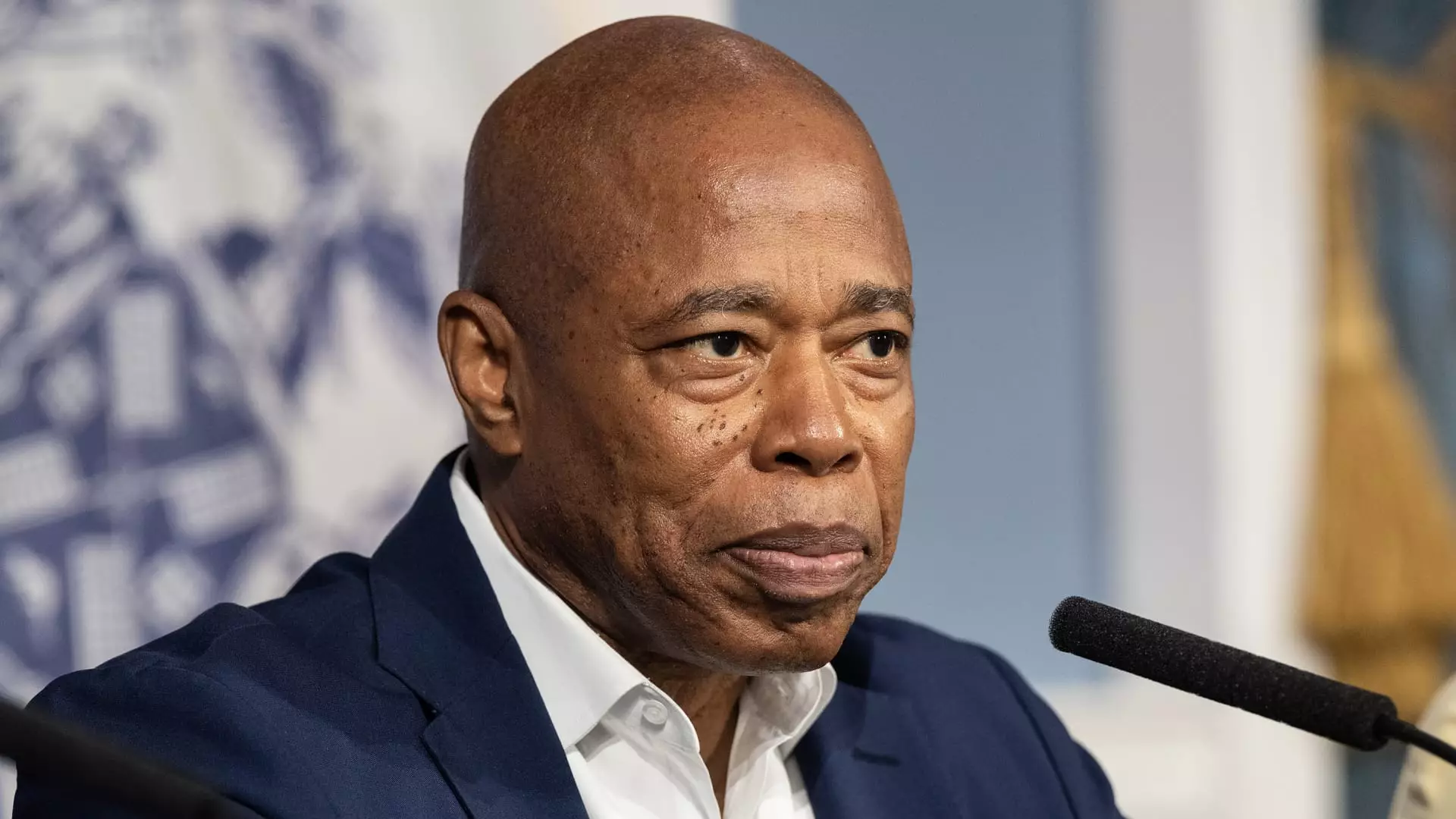The conversation surrounding the potential for President-elect Donald Trump to pardon New York City Mayor Eric Adams highlights the complex interplay between politics and the law in America. Following Trump’s assertion that he would “certainly look at” pardoning Adams, the implications of such a decision become a pivotal topic of discussion. This scenario epitomizes a fundamental question about the use and sometimes misuse of pardon powers in government, particularly in a politically charged environment.
Eric Adams, a Democratic mayor, is currently facing federal corruption charges, a situation that has raised eyebrows and provoked debate within political circles. These allegations include accepting extravagant gifts from affluent foreign entities and charges linked to campaign finance irregularities during his successful 2021 mayoral campaign. The specific nature of the accusations against Adams—ranging from luxury travel to alleged conspiracy—underscores the severity of the allegations while also exposing the often murky waters of campaign funding and ethics.
Trump’s comments dismissing the significance of the charges— equating them to mere upgrades on flights—bring into question not only the gravity of the situation but also the potential influence of partisanship on judicial matters. By attempting to normalize the allegations, Trump indirectly draws attention to the possibility that political motivations may lurk behind prosecutions, a theme he has explored throughout his own tumultuous political career.
The intertwined nature of Donald Trump and Eric Adams’s political trajectories cannot be overlooked. Trump’s remarks suggest an understanding of political dynamics that extends beyond mere law; he hinted at a potential retribution motive tied to Adams’s strident critiques of immigration policies favored by the Biden administration. This insinuation brings to light a broader discourse about how political discourse can play a role in criminal prosecutions, where figures in power may use legal systems to retaliate against opposition or dissent.
Adams himself has publicly stated that he feels targeted due to his positions, particularly regarding immigration. This narrative positions him as a political martyr, appealing to his base and those sympathetic to his cause while simultaneously raising alarms over the fairness of legal processes in politics. The merging of legal and political narratives provides fertile ground for debate among scholars and citizens alike regarding justice and accountability.
The prospect of Trump issuing a pardon creates a ripple effect in the realm of governance and public perception. It raises pivotal questions about the ethical implications of pardons in situations where the beneficiaries have political connections or where their political actions may influence legal outcomes. If Trump were to grant a pardon to Adams, it could set a precedent that discredits the impartiality of the judicial system in favor of political alliances.
The discussion surrounding the potential pardon of Eric Adams highlights significant concerns about legal integrity and political maneuvering in America. As investigations into corruption allegations proceed, both Adams’s future and the broader implications for American democracy are in flux. The intersection of law, politics, and public sentiment continues to shape the discourse, as various actors vie for legitimacy and power in an increasingly polarized environment.


Leave a Reply